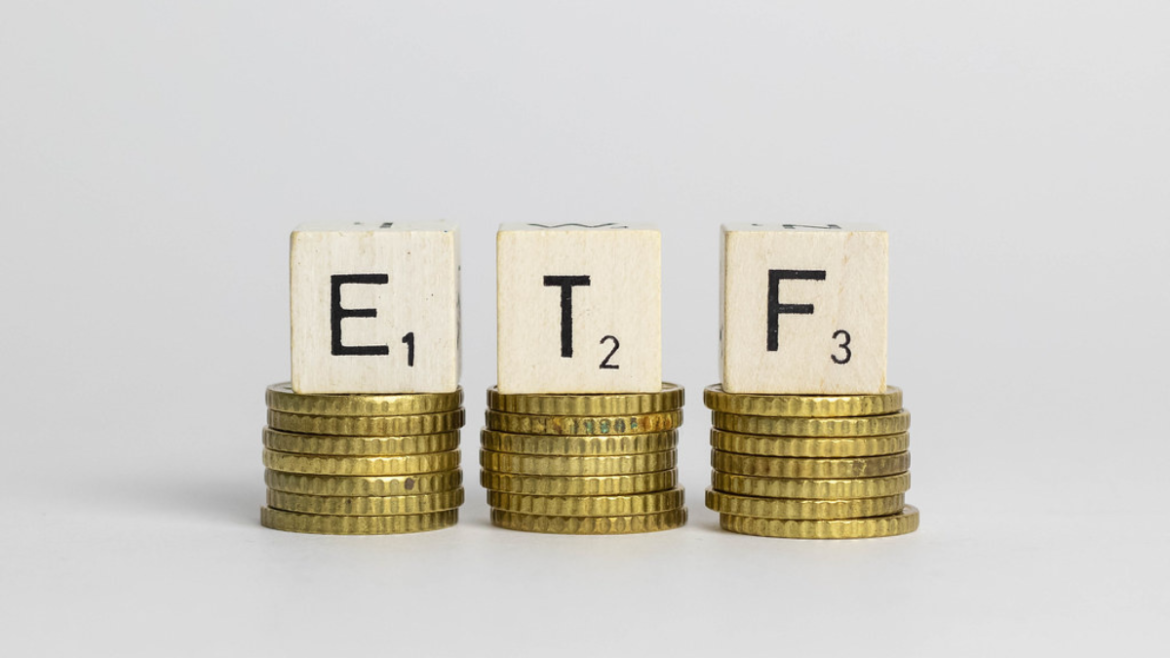As cryptocurrency wades through its early teens, a wide range of investment instruments have been born with crypto as an underlying asset. These instruments serve different purposes keeping various investment strategies and portfolio needs in mind. An exchange-traded fund or ETF in crypto works to track the prices of one or several crypto tokens; it’s essentially a basket of cryptocurrencies.
Crypto ETFs are born from similar instruments in use in the traditional financial markets for quite a long time now. They are in demand among investors for a bunch of reasons, namely lower transactional charges, and intraday liquidity. Investors can use these instruments to trade their shares of a particular security over and over during a trading day.
In this post, we learn all about cryptocurrency ETFs and how they work.
How Do Exchange-Traded Funds (ETFs) in Crypto Work?
Exchange-traded funds in crypto, as mentioned before, track a single crypto or an assortment of digital currencies.
Cryptocurrency ETFs might be backed by actual crypto assets or any crypto-based securities like derivatives. While ETFs from the traditional financial markets directly own the underlying assets, crypto ETFs usually own just crypto-based derivatives like futures and options. The intention with crypto ETFs is to keep up with the price fluctuations the actual cryptos witness. However, exchange-traded funds for crypto still might not always match up to the underlying cryptos, as they don’t have any spot holdings.
What makes a fund an exchange-traded one? There are a few features a crypto ETF exclusively possesses, such as:
- They invest in businesses that make use of crypto and/or its underlying blockchain technology in one way or another.
- They allow for exposure to a wide variety of crypto without needing investors to do the asset managing work themselves.
- They allow for low costs of ownership, portfolio diversification, and the delegation of the knowledge and time one has to otherwise dedicate to pick suitable crypto tokens to invest in.
Notably, the very first crypto ETF started trading only over a year ago in October 2021 in the form of a Bitcoin ETF from the ProShares Bitcoin Strategy ETF (BITO).
ADVERTISEMENT
CONTINUE READING BELOW
So, what are the Benefits of a Crypto ETF?
Deviating from the traditional securities markets, crypto ETFs bring a range of exclusive advantages to crypto traders. What are these? Let’s find out the benefits of crypto ETFs!
- Exchange-traded funds in crypto allow you to invest in a volatile and expensive asset class in a comparatively cost-effective way.
- Crypto ETFs are a good way for new investors to get into crypto, as you get to observe analysts in charge of the funds make investment decisions. And while the responsibility is distributed, you also get to learn from them.
- Crypto ETFs also eliminate additional charges like custody costs, network fees, and transactional charges.
- The exchanges in charge of ETFs are in charge of the security factor, which again allows investors some peace of mind regarding the safety of their investments, especially if you are new to the sector.
- This goes without saying: exchange-traded funds allow for the diversification of portfolios without you having to pay for each token included separately.
Cryptocurrency ETFs vs. Mutual Funds: Which is Better for Me?
This one is a long running debate, and new investors are often in doubt when it comes to picking one out of crypto ETFs and mutual funds over the other. Let’s see the differences between the two so you have an easier time picking one for yourself.
A crypto mutual fund, much like an exchange-traded fund in crypto, invests in one or several virtual currencies. Crypto mutual funds are provided by asset management companies and brokers associated with them. Mutual funds can be managed either actively or passively. An actively managed mutual fund is one where an experienced team is actively making trades for better returns. On the other hand, a passively managed mutual fund emulates a certain index or benchmark to keep up a similar performance.
Now, there are several points of similarity between the two- a crypto ETF and a crypto mutual fund. Such as:
- Both trace the prices of underlying crypto tokens.
- Already existing investment accounts can be employed in buying into crypto mutual funds or crypto ETFs.
- Investors bear an expense ratio in both investments.
However, there are still many factors that differentiate the two.
ADVERTISEMENT
CONTINUE READING BELOW
| Crypto ETFs | Crypto Mutual Funds | |
| Management Method | Most exchange-traded funds in crypto are managed passively. | Most crypto mutual funds are managed actively. |
| Time of Trading | Crypto ETFs trade throughout the day. | Crypto mutual funds only trade once a day. |
| Minimum Investment Requirements | There’s no specified minimum investment with crypto ETFs. | Crypto mutual funds usually have a minimum investment cap. |
Conclusion:
We do hope this post has helped you grasp the concept of an exchange-traded fund in crypto, and the differences between crypto ETFs and crypto mutual funds. Whichever your investment vehicle of choice is, make sure you understand that you don’t directly own any crypto with them before heading into investments.
As always, evaluate the risks associated with crypto markets before setting foot into trading, and invest only what you can afford to lose.
We wish you good luck as you head into crypto ETFs trading!
Interested in trading crypto in India? Give WazirX website a visit today to find out how!
Disclaimer: Cryptos are unregulated virtual assets, not a legal tender and subject to market risks. The views and opinions expressed in the article are those of the author(s) and don’t represent any investment advice or WazirX’s official position.
ADVERTISEMENT
CONTINUE READING BELOW
Also read | What is a DAO? Different types of DAOs

